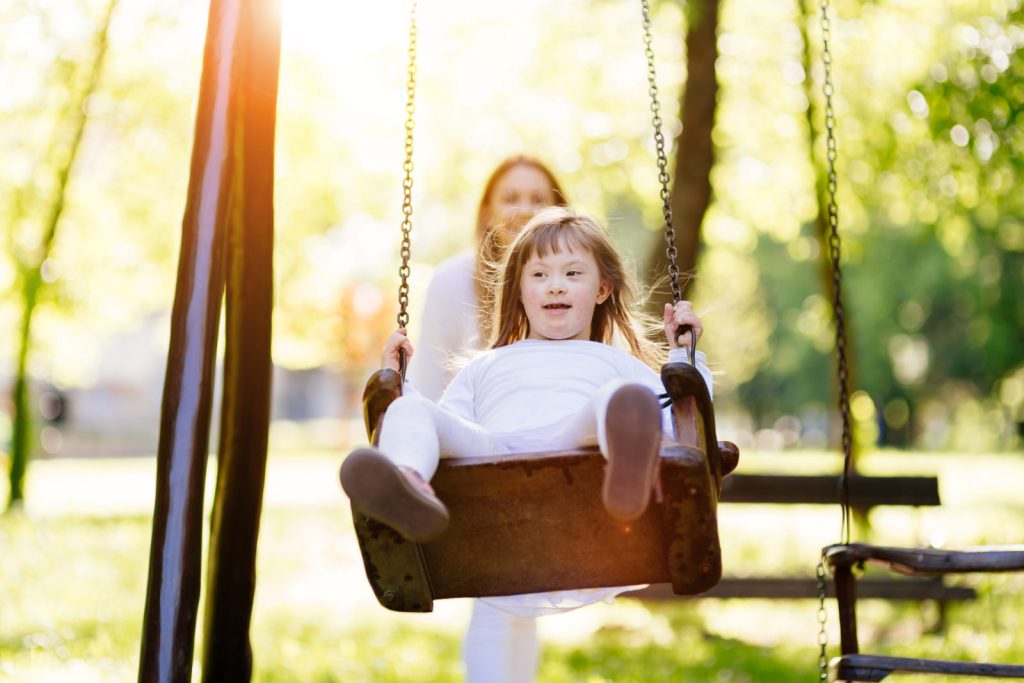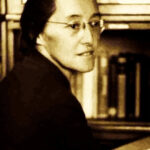
Published October 19, 2016
First Things - October 2016 issue
Dependency is just as much a part of the human experience as the ability to reason. And yet, modern thought has largely neglected dependency, instead touting individual autonomy and rational self-interest. If we are to recover the human person’s proper relationship with others, we must turn to thinkers who give dependency its due.
Feminist philosopher Eva Feder Kittay’s celebrated book, Love’s Labor: Essays on Women, Equality, and Dependency, is now approaching its eighteenth year in print. Kittay’s central argument, that the dependent human condition necessitates an ethics of care, has provided an important corrective to modern political philosophy generally, and to autonomy-dominated feminist theories in particular. Kittay and other “care feminists” have worked to shift the feminist paradigm from a vision of sexual equality that prizes autonomy above all toward a view that embraces human vulnerability and ennobles caregiving. In this view, moral and political theories should begin with the inescapable reality of human dependency. The self-interested economic man is not normative; rather, it is the maternal figure in the mother-child relationship that models human life. In Love’s Labor, Kittay works out the foundations for such an approach, inspired in part by the decades she has spent caring for her severely disabled daughter.
Kittay advances a compelling account of the dignity of the disabled, the essential work of caregivers, and the responsibility of a humane society to protect and provide for them. The autonomous individual who plays the starring role in the modern political project is a harmful fiction, she maintains. Not only does it ignore the dependency common to every person, it also denigrates those who devote themselves to the care of others. Once we set autonomy aside, we can focus on how social institutions serve the actual human condition of vulnerability.
But however much Kittay reveals the ethical shortcomings of a society based on individual autonomy, her ethic of care ultimately falls short. Two aspects undermine it: first, her commitment to abortion rights and, second, her failure to appreciate sexual difference and the distinct contribution of fathers. While she acknowledges that our embodied condition gives rise to moral obligations to care for the weak and vulnerable, she doesn’t see how sexual difference also imposes particular duties on the part of mothers and fathers. Her ethic of care needs to inform her feminism more fully.
According to Kittay, human vulnerability and dependence create the need for caregivers. In a civilized society, some of us must assume the moral duty to give care. In order for those who are dependent to thrive, the caregiver must serve the needs of the dependent, even if this comes at great sacrifice to the caregiver’s own needs. Kittay writes in Love’s Labor, “It is neither capricious nor misogynist nor disrespectful of individual rights when we insist that individuals who mother infants or young children defer their own desires, and even needs, to meet those of their dependent child.”
Kittay recognizes that women are far more likely to be primary caregivers of children and other dependents. Thus, an ethical theory that prizes autonomy over dependency and caregiving may neglect women’s special vulnerability to these demands. And so she sets out to elevate the status of caregiving as an indispensable work worthy of cultural esteem. Human vulnerability and the caregiving it evokes are not to be accommodated as exceptions to the human experience. Rather, they form the nucleus around which all other social institutions should take shape. Women’s traditional work has never had so great a champion, from a secular feminist perspective.
But Kittay also seeks to “degender” care work. She argues that women’s disproportionate role in caregiving is a socially constructed feature of a still prevailing patriarchy. Care work is so critical to a humane society that men ought to undertake it as well. To promote this tendency, she uses the term mother to denote any proper caregiver regardless of the person’s sex. Men, too, can be mothers.
The initial problem with this formulation is that recent findings contradict the claim that caregiving by women is born of social construction alone. Studies show that some of the most sex-segregated educational and occupational markets are found within the most egalitarian societies, where women have achieved marked political and social equality. In the United States, studies continue to show that most mothers prefer part-time to full-time work, with the highly educated and well-to-do continuing to opt out of full-time work in higher numbers. In countries such as Norway, where generous social benefits encourage both mothers and fathers to care for young children, mothers’ time at home still predominates; almost half of Norwegian women work part-time. When given the choice, women choose to give care at rates far higher than men do.
Kittay’s argument for the fundamental value of the “mother” in the life of a society would be strengthened, moreover, by not ceding motherhood to an androgynous disposition of attentive service. The case would be better made with an explicit affirmation of the maternal experience that first defines the term mother: pregnancy and childbearing. After all, as vulnerable and dependent human beings, we enter the world inside of our mothers. Our fragile bodies develop within their protective bodies. They provide complete nourishment until we emerge from our mothers’ wombs and for several months thereafter. Efforts to degender mothering devalue this role, which is enjoyed by women alone. No other caregiving in the common course of human experience better manifests the reality of human dependency and the proper human response. Pregnancy and childbirth, uniquely female possibilities, exemplify in a particularly powerful way Kittay’s core claim.
This is why abortion is such a betrayal of women and the unique place of mothers in an ethic of care. Kittay is aware of this tension. Her own reasoning suggests that mothers have a special duty to nurture and protect the vulnerable unborn child, never to destroy it: “The needs of another call forth a moral obligation on our part when we are in a special position vis-à-vis that other to meet those needs.” The moral claim, she continues, “arises not by virtue of the properties of an individual—construed as rights, needs, or interests—but out of a relationship between one in need and one who is situated to meet the need.”
As one who dissents from the contractual view that obligations can only be voluntarily assumed, Kittay acknowledges that a mother is in a “special position” in relation to the unborn child. This would seem to rule out abortion. But she backs away. Elsewhere, she writes that the decision to have an abortion is always difficult, but a woman’s to make. The pro-choice position is common among feminists, but it runs counter to the logic of Kittay’s argument. The affirmative duty of care that arises from the special relationship between pregnant mother and dependent child remains among the strongest arguments against the abortion license.
Defenders of abortion rights often say that in pregnancy, childbearing, and caregiving, women sacrifice a portion of their autonomy and become vulnerable. This is true. And here we must agree with Kittay that their vulnerability imposes duties on others. The caregiver herself needs a “provider,” she suggests, someone to support the work of care. But, make no mistake, Kittay’s providers are not the providers of old. Just as she degenders mothers, she degenders fathers.
Kittay sees no differentiated role for fathers. If men are going to be involved with dependents (which they ought to be), then they should take over some of the caregiving work traditionally performed by women. Women can then participate in the workplace more freely, and men may enjoy the benefits and burdens of caregiving. Men and women can and should alternate caregiver and provider roles. There is no reason why we should think of a form of paternal care as distinct from maternal care.
It follows that two women or two men can raise a child just as well as the child’s mother and father can. So long as a provider offers the caregiver the support needed, the sex of the provider and caregiver is irrelevant. Two parents are better than one in tending to the needs of the child; two parents have more resources to offer. Kittay is clear about this. Indeed, she thinks we can distribute the mothering among many caregivers, male or female, familial or professional, paid or unpaid. But the very best provider is not a spouse at all (since the power differential between a “private provider” and caregiver makes the latter vulnerable to exploitation). The optimal situation, for her, is a “public provider,” the state. She envisions government compensating those whose work is the care of dependents.
With a public provider in place, fathers no longer maintain their traditional role as head of the household. The dreaded patriarchy falls to the ground, a feminist goal Kittay embraces. But here, again, an inconsistency arises. Kittay endorses the moral demands that arise from our embodied condition, but in her thinking, the father’s man-ness does not make a unique contribution to the care of the dependent. Just as she has a diminished view of women that ignores the role of their bodies in relation to their children, she also has an anemic view of men and their bodies, reducing them to quasi-mothers. In her desire to ensure cultural respect, protection, and adequate provision for caregiving and caregivers alike—and her praiseworthy view that men, too, can care for dependents—Kittay forgets the premise from which she began. In so doing, she trivializes that crucial time of pregnancy and childbearing that epitomizes a woman’s care and dependency, and she disregards entirely the unique relation of fathers to their children.
A child wants her mother and father, not two interchangeable individuals playing degendered roles. The same holds for men and women. In fact, for men the paternal role can be especially transforming. When fathers take seriously their paternal duties, all of society benefits.
Margaret Mead said that “the central problem of every society is to define appropriate roles for the men.” That’s certainly true today. Women’s identity has always been anchored in nurturing life and relationships, traditionally in the home, and now also in the ER and the boardroom. But men’s contributions as fathers are less biological and immediate, though just as needed by their children, as well as their children’s mothers. Kittay errs in defining a child’s parents simply by their tasks as caregivers and providers. Mothers and fathers are these, of course, and today we see a multiplicity of arrangements as women and men take part in the public and private spheres of life. But these looser social roles in family and in society do not justify our forgetfulness of the unique contributions men make in the lives of their own children.
In the United States, where the proportion of nonmarital births hovers around 40 percent in the general population and 70 percent for the African-American population, we find high rates of active mothers and absent fathers. This testifies to that stubborn maternal embrace of dependents, even when doing so requires much and comes at great sacrifice.
In spite of women’s often heroic efforts, the absence of fathers has been devastating for children. Study upon study in the United States and Europe reveals that children who grow up in a home without their biological father are far more likely to live in poverty, suffer neglect and abuse, use drugs and alcohol, and drop out of school. Boys without fathers show higher levels of aggressive behavior and are more likely to commit crimes; girls hit puberty earlier, engage in sexual activity sooner, and are more likely to become pregnant as adolescents. Recently, researchers from MIT reported that sons raised by single mothers fare even worse than daughters in the same situation. New York Times columnist Ross Douthat notes the “compounding effect” this problem presents. Boys raised without their fathers are less likely to grow up to be marriageable men themselves, leaving women without “enough plausible mates to choose from.”
Recent research also suggests that a father’s affection for his children’s mother contributes even more to the well-being of his children than does good fathering. Jeffrey Rosenberg and W. Bradford Wilcox report that “one of the most important influences a father can have on his children is indirect—fathers influence their children in large part through the quality of their relationship with the mother of their children.” Wilcox has found that the father’s strong relationship with his children’s mother is correlated to children who are healthier psychologically and emotionally. Moreover, the leading determinant of a mother’s happiness is the father’s commitment to and emotional investment in her well-being and that of their children.
The indirect role of the father reflects the embodied realities Kittay wants to restore to our moral and political reflections. Gestation and birth give mothers an immediate relationship with the vulnerable child. The father’s relationship with his child is secondary, we might say, to his primary “mating” relationship with the mother of his child. So-called “investment theories” in evolutionary biology affirm this difference: Males tend to focus on mating while females spend more time and attention on parenting. This difference plays out in cases of divorce, which usually affect fathers’ investment in their children far more than mothers’. Researchers David Bjorklund and Ashley Jordan have found that “while divorce rarely weakens a mother’s affection for her children, it does frequently result in a deterioration of the father-child relationship.” This finding doesn’t prove that fathers’ role with children has no direct elements. Almost all fathers, no matter how estranged from the mother of their children, feel a paternal duty and relish bonds with their children. But it does show that the full exercise of fatherhood depends upon the prior commitment of father to mother. The data for the last fifty years consistently confirm that marriage best connects fathers to their children. And so the father’s distinctive contribution to his children’s well-being begins with a strong and healthy relationship with his children’s mother.
A father cannot therefore be a mere stand-in mother, sharing an androgynous caregiving role. But neither should he serve only as a support for the mother. Children whose fathers are attentive and present in their lives have better educational outcomes overall. Fathers seem to be a determining factor in the emotional and social well-being of their children. Children with caring fathers in intact marriages enjoy more security, more confidence in exploring the world, a greater ability to deal with school stresses, and better social connections with peers. Children with attentive fathers are more patient than children with fathers who are less attentive. Fathers tend to engage their infants and preschoolers in stimulating, rough-and-tumble play, and researchers think this is one reason why the children of attentive fathers more effectively regulate their feelings and behavior. Girls whose fathers like being with them and their mother experience the benefits of delayed sexual development and delayed sexual experience. Boys with attentive fathers have better impulse control and pro-social behavior, and so have far lower crime rates. And fathers tend to encourage children to do things for themselves at a young age, which helps their competence and confidence later in life. While children who grow up in single-parent or adoptive families can show impressive resilience—and many flourish throughout their lives—researchers from the Heritage Foundation to the Brookings Institution confirm that children enjoy the best likelihood of positive outcomes when they have a loving relationship with both of their biological parents.
The embodied human condition, differentiated as it is by sexual dimorphism, offers clues for the care of children that we cannot ignore. If the mother’s initial embodied immediacy with the child influences her custodial care for the child’s physical and emotional needs, the father’s relative distance from the child plays an essential part, too. The father’s attention and affection, uniquely offered to his child, gives the young child the assurance he needs to separate from the mother’s embrace and progress toward independence. The custodial care the mother offers the infant child enables the child’s needs to be met promptly and responsively; the father’s care enables the child to move out into the world with confidence. Both are needed for the child’s development.
When we admit the primacy of embodied dependency, as Kittay and others argue we must, we see the mother’s custodial role quite readily. Her body tells her a great deal about her obligations to her dependent child. We have a harder time discerning the place of the father. His body speaks less directly. It seems perhaps that he can stay or he can go; he can fill in for his children’s mother or he can let other adults or the state take his place. Without a culture that expects him to fulfill his paternal duties and that expresses moral opprobrium when he neglects to do so, a father may lack direction, uncertain about his essential role in the lives of his children.
Feminists such as Kittay need to take embodied sexual difference into account. A genuine culture of care for the vulnerable demands that the father stay, that the father be a father. Some of what makes fathers distinctive from mothers are the duties fathers undertake in support of the disproportionate devotion mothers give to caregiving. Kittay rejects this view because it seems to place men in a dominant position, rendering the mothers of their children vulnerable to the fathers’ exploitation. But, as she acknowledges, a similar power differential also exists between caregiving mother and dependent child. Vulnerability, as she writes, is part of what it means to be in a relation of dependency. But as in the paradigmatic mother-child relationship, inequality of power need not give way to exploitation. Indeed, vulnerability properly inspires responsibility. The more powerful and independent mother puts herself at the service of the more vulnerable and dependent child.
This is the norm for mothering: to use one’s superordinate power to serve the needs of the vulnerable. A woman’s body makes her vulnerable to pregnancy and childbearing, and her penchant for caregiving makes her more dependent as well. In that circumstance, we cannot accept absence, torpidity, or exploitation on the part of the father. The mother’s dependence imposes on the father a moral duty to serve her needs and those of their children. This relationship is an alliance of trust, not dependency for one and autonomy for the other. Kittay sees this, writing of the caregiver and dependent relationship: “unless this trust is respected often enough, it is difficult to imagine how the work of caring for dependents could be accomplished.” But she cannot see how marriage, traditionally conceived, requires and encourages exactly this trust.
Rousseau was right when he said that women have a civilizing effect on men, but it isn’t because of women’s natural virtue. (They can be vicious, too.) It is due to sexual asymmetry. The vulnerability and dependency women experience in their very bodies and in caregiving encourages men to give of themselves in service of their wives and dependent children. The culture of care that Kittay argues for must not jettison the father’s place in the lives of his children and their mother, nor should we call upon the state to replace him. A full culture of care instead demands that men turn their penchant for conquest—a masculine tendency that, when undisciplined, gives way to gangs, gamers, and worse—inward to conquer their passions for the good of their families. Valerie Hudson and Andrea den Boer worry that, in Asian cultures where men greatly outnumber women, male aggression will threaten civilized culture and stability. Interestingly, testosterone levels drop when men become fathers, and drop even further when they are attentive fathers. Fatherhood curbs instincts of aggression. A culture of care encourages men to give of themselves for the good of their wives and children.
Care feminists like Kittay criticize the way in which the feminist movement (and the Western political tradition from which it sprang) prizes autonomy. Valuing the vulnerable person turns us away from the isolated, rights-asserting self and toward the relational duties owed to the vulnerable other. In the modern quest for equality as autonomy, women have sacrificed the very lives of their unborn children—and often precious time with their young children—to compete on a playing field designed for the unencumbered. So long as the quest for sexual equality masks the inescapable dependencies and moral asymmetries that flow from the differences between the bodies of men and women, most women will feel that the modern promise of equality has eluded them.
Kittay is right to advocate greater support and provision for caregiving. But universal provisions for caregivers will not bring about authentic sexual equality—even if greater public provision should be made—because sexual equality will never be fully realized at the hands of the state. Rather, it is found in a mutual appreciation of sexual difference, an affirmation of moral duties that arise out of sexual asymmetry, and a deep and abiding trust that the one truly wills the good of the other.
Erika Bachiochi is a visiting fellow at the Ethics and Public Policy Center and a research fellow at the University of St. Thomas’s Terrence J. Murphy Institute for Catholic Thought, Law, and Public Policy.











